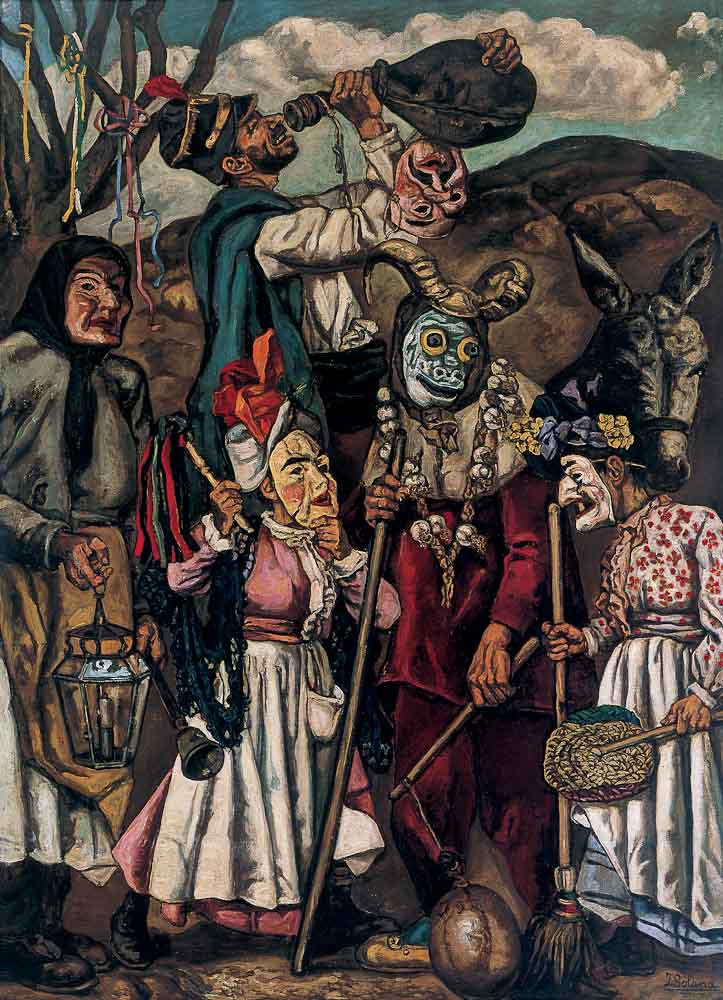
José Gutiérrez Solana (Madrid, 1886-1945)
Masks
ca. 1932
WORK INFORMATION
Oil on canvas, 204 x 149 cm
OTHER INFORMATION
Signed at the lower right corner “J. Solana”
Popular festivals, Carnival and their accompanying masks were closely associated in Solana’s life. He was born during Carnival time, while some of his most negative childhood memories were linked to these celebrations. His used these subjects to depict images of death, suffering and the de-mystification of individuals, and masks became one of his most recurring themes in both his visual output and his writings.
Possibly reacting against the reality that surrounded him, the artist took pleasure in the world of masks. Solana’s are ironic, fantastical and grotesque masks, which he brilliantly depicts in this work. It combines unmasked figures such as the woman and the soldier with an adult and two children wearing carnival masks who stand out due to the bright colours of their clothing.
The masked figures are always silent and seemingly frozen in time. Here these figures carry a lantern and bell for the last rites and extreme unction, in addition to brooms, fire beaters and rag mops. Using a frontal perspective, Solana structures the composition into various planes, set against a dry, bare and lifeless landscape with a single tree in it. In what is perhaps an homage to wine, the soldier in the centre, mask in hand, drinks directly from a wineskin.
This canvas dates from Solana’s mature period. It deploys a wide and exceptionally harmonious range of colours with a particular emphasis on reds and whites. The sculptural figures are solely drawn through colour.
Solana showed Masks at the Venice Biennial in 1932 and in numerous other international exhibitions.
María José Salazar
